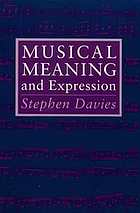 February begins Black History Month in the United States, a time to remember and celebrate the many contributions and accomplishments of African Americans. The origins of Black History Month can be traced back to 1915, when historian Carter Woodson and the Association for the Study of Negro Life and History (ASNLH) proposed the second week of February to be Negro History Week. This week was chosen because it coincided with the birthdays of Abraham Lincoln and Frederick Douglas. As the name suggests, the focus of the week was to promote the study and appreciation of Black history.
February begins Black History Month in the United States, a time to remember and celebrate the many contributions and accomplishments of African Americans. The origins of Black History Month can be traced back to 1915, when historian Carter Woodson and the Association for the Study of Negro Life and History (ASNLH) proposed the second week of February to be Negro History Week. This week was chosen because it coincided with the birthdays of Abraham Lincoln and Frederick Douglas. As the name suggests, the focus of the week was to promote the study and appreciation of Black history.
The transition to a full month of commemoration began decades later in 1969 when it was proposed by Black educators and students at Kent State University and then celebrated for the first time the next year. In 1976, Black History Month was observed across the country for the first time when President Ford recognized it during the US Bicentennial. He urged Americans to “seize the opportunity to honor the too-often neglected accomplishments of Black Americans in every area of endeavor throughout our history.” While the focus was on educational institutions initially, it quickly moved beyond them.
Every president since Ford has continued to recognize Black History Month and has done so under a particular theme set by ASNLH, now known as the Association for the Study of African American Life and History (ASALH). This year’s theme Black Resistance explores how “African Americans have resisted historic and ongoing oppression, in all forms, especially the racial terrorism of lynching, racial pogroms and police killings.” This resistance has also “consistently push[ed] the United States to live up to its ideals of freedom, liberty, and justice for all.”
Over the centuries this resistance has taken many forms. It has included Black Americans participating in protests, sit-ins, marches, an d boycotts. It has involved participation in politics and advocacy to bring about legislative and judicial change. It has seen Black faith institutions inspiring folks to join movements but also providing sanctuary in times of danger. It has meant developing media outlets, including radio shows, newspapers, and podcasts, to raise awareness of issues and activities. It has brought about the development of cultural centers, societies, and libraries to support intellectual development of communities and to collect and preserve Black stories and history. It has been embodied by Black medical professionals working to establish nursing schools, hospitals, and clinics to provide health care. It has necessitated forming labor unions as a means for Black men and women to resist inequality and advocate for themselves in the workplace. It has centered on education whether in elementary, secondary, or higher education institutions. It has used music – African American spirituals, gospel, folk music, hip-hop, and rap – to express struggle, hope, and solidarity in the face of oppression. It has relied on writers, artists, and photographers who not only supported resistance movements but also provided a new vision of the future and created a place for Black expression. It has incorporated Back athletes who have used their status to bring awareness to issues and advocate for change.
d boycotts. It has involved participation in politics and advocacy to bring about legislative and judicial change. It has seen Black faith institutions inspiring folks to join movements but also providing sanctuary in times of danger. It has meant developing media outlets, including radio shows, newspapers, and podcasts, to raise awareness of issues and activities. It has brought about the development of cultural centers, societies, and libraries to support intellectual development of communities and to collect and preserve Black stories and history. It has been embodied by Black medical professionals working to establish nursing schools, hospitals, and clinics to provide health care. It has necessitated forming labor unions as a means for Black men and women to resist inequality and advocate for themselves in the workplace. It has centered on education whether in elementary, secondary, or higher education institutions. It has used music – African American spirituals, gospel, folk music, hip-hop, and rap – to express struggle, hope, and solidarity in the face of oppression. It has relied on writers, artists, and photographers who not only supported resistance movements but also provided a new vision of the future and created a place for Black expression. It has incorporated Back athletes who have used their status to bring awareness to issues and advocate for change.
ASALH chose the theme of Black Resistance as “a call to everyone, inside and outside the academy, to study the history of Black Americans’ responses to establish safe spaces, where Black life can be sustained, fortified, and respected.” To learn more about the history of Black resistance see our book display on the main floor of the Library and the resources in our Civil Rights and Social Justice database.





